Fact:
On April 3, 2017, the day Vladimir Putin was due to visit the city, a suicide bombing was carried out in the St. Petersburg metro, killing 15 people and injuring 64. An al-Qaeda affiliate, Imam Shamil Battalion, claimed responsibility.
Habib Shahsavari is the internationally designated commander of the Shohada Provincial Corps of the Islamic Revolutionary Guard Corps (IRGC) in Iran’s West Azerbaijan province.“Iran-related Designations; Russia-related Designation Removal; Ukraine-related Designation Removal,” U.S. Department of the Treasury, March 8, 2023, https://ofac.treasury.gov/recent-actions/20230308; “CONSOLIDATED LIST OF FINANCIAL SANCTIONS TARGETS IN THE UK,” HM Treasury, last updated April 24, 2023, https://assets.publishing.service.gov.uk/government/uploads/system/uploads/attachment_data/file/1152335/Iran__Human_Rights_.pdf. Shahsavari holds the rank of brigadier general. He is accused of participation in “gross and systematic human rights violations in Iran, including through the lethal suppression of demonstrations across Kurdish areas of Western Iran.”“Sanctions – Gross and systematic human rights violations in Iran,” Government of Canada, accessed April 25, 2023, https://www.international.gc.ca/campaign-campagne/iran-sanction/index.aspx?lang=eng.
In September 2022, the IRGC joined in violently suppressing protests that erupted after the September 16 death of Mahsa Amini, a 22-year-old Kurdish woman who died in custody after being detained by Tehran’s morality police, the Guidance Patrol, earlier in the month. The Guidance Patrol sent Amini to a detention center to undergo re-education when they claimed she was not wearing a hijab properly. She died three days later. In response, protests erupted across the country against Iran’s theocratic rule. The IRGC aided in suppressing the protests, leading to violent clashes with protesters. At least 522 protesters have been killed since the protests began in September 2022.Arsalan Shahla, “Iran Launches Artillery Against Militants in Northern Iraq,” September 24, 2022, https://www.bloomberg.com/news/articles/2022-09-24/iran-launches-artillery-against-militants-in-northern-iraq?leadSource=uverify%20wall; “IRGC will not hesitate to target origin of any anti-Iran operation wherever it may be: General,” Press TV, September 27, 2022, https://www.presstv.ir/Detail/2022/09/27/689915/IRGC-will-not-hesitate-target-origin-any-anti-Iran-operation-General; Caitlin McFall, “The Guardian Patrol sent Amini to a detention center to undergo re-education when they claimed she was not wearing a hijab properly. She died three days later.,” Fox News, September 24, 2022, https://www.foxnews.com/world/protestors-clash-revolutionary-guard-northern-iran-torch-irgc-base-reports; “Iran’s Guards Break Their Silence, Warn Protesters,” Iran International, September 22, 2022, https://www.iranintl.com/en/202209229946; “Lebanon’s Hezbollah Helping Iran In Its Pro-Government Propaganda,” Iran International, October 9, 2022, https://www.iranintl.com/en/202210091141; Vivian Yee and Farnaz Fassihi, “Iran Has Abolished Morality Police, an Official Suggests, After Months of Protests,” New York Times, last updated December 5, 2022, https://www.nytimes.com/2022/12/04/world/middleeast/iran-morality-police.html; Patrick Wintour and Maryam Foumani, “Iran: mass strike starts amid mixed messages around abolishment of morality police,” Guardian (London), December 5, 2022, https://www.theguardian.com/world/2022/dec/05/iran-strike-abolishment-morality-police; Agence France-Presse, “At least 522 Have Died in Iran Protests, Human Rights Report Says,” Radio Free Europe/Radio Liberty, January15, 2023, https://www.rferl.org/a/iran-protests-death-count-human-rights-report/32224340.html#:~:text=At%20least%20522%20people%20have,security%20forces%2C%20the%20agency%20reported.
According to the European Union, IRGC troops under Shahsavari’s command used disproportionate force against protesters, resulting in human rights violations. In particular, the European Union cited IRGC misconduct under Shahsavari’s command during operations in the West Azerbaijan towns of Piranshahr, Mahabad, and Bukan on November 15, 2022. According to estimates cited by the European Union, IRGC forces killed four people in Mahabad and 12 people in Bukan. The European Union holds Shahsavari responsible for “serious human rights violations in Iran.”Official Journal of the European Union, “COUNCIL IMPLEMENTING DECISION (CFSP) 2022/2433 of 12 December 2022 implementing Decision 2011/235/CFSP concerning restrictive measures directed against certain persons and entities in view of the situation in Iran,” EUR-Lex, December 12, 2022, https://eur-lex.europa.eu/legal-content/EN/TXT/PDF/?uri=CELEX:32022D2433&from=EN.

The European Union added Habib Shahsavari to its sanctions list on December 12, 2022.Official Journal of the European Union, “COUNCIL IMPLEMENTING DECISION (CFSP) 2022/2433 of 12 December 2022 implementing Decision 2011/235/CFSP concerning restrictive measures directed against certain persons and entities in view of the situation in Iran,” EUR-Lex, December 12, 2022, https://eur-lex.europa.eu/legal-content/EN/TXT/PDF/?uri=CELEX:32022D2433&from=EN.

March 8, 2023
The United States sanctioned Habib Shahsavari as a Specially Designated National on March 8, 2023.“Iran-related Designations; Russia-related Designation Removal; Ukraine-related Designation Removal,” U.S. Department of the Treasury, March 8, 2023, https://ofac.treasury.gov/recent-actions/20230308.

Australia added Habib Shahsavari to its sanctions list on January 21, 2023.“Shahsavari, Habib,” United Against Nuclear Iran, accessed April 25, 2023, https://www.unitedagainstnucleariran.com/sanctioned-person/shahsavari-habib.

Canada added Habib Shahsavari to its sanctions list on February 23, 2023.“Sanctions – Gross and systematic human rights violations in Iran,” Government of Canada, accessed April 25, 2023, https://www.international.gc.ca/campaign-campagne/iran-sanction/index.aspx?lang=eng.

The United Kingdom added Habib Shahsavari to its sanctions list on April 24, 2023. “CONSOLIDATED LIST OF FINANCIAL SANCTIONS TARGETS IN THE UK,” HM Treasury, last updated April 24, 2023, https://assets.publishing.service.gov.uk/government/uploads/system/uploads/attachment_data/file/1152335/Iran__Human_Rights_.pdf.
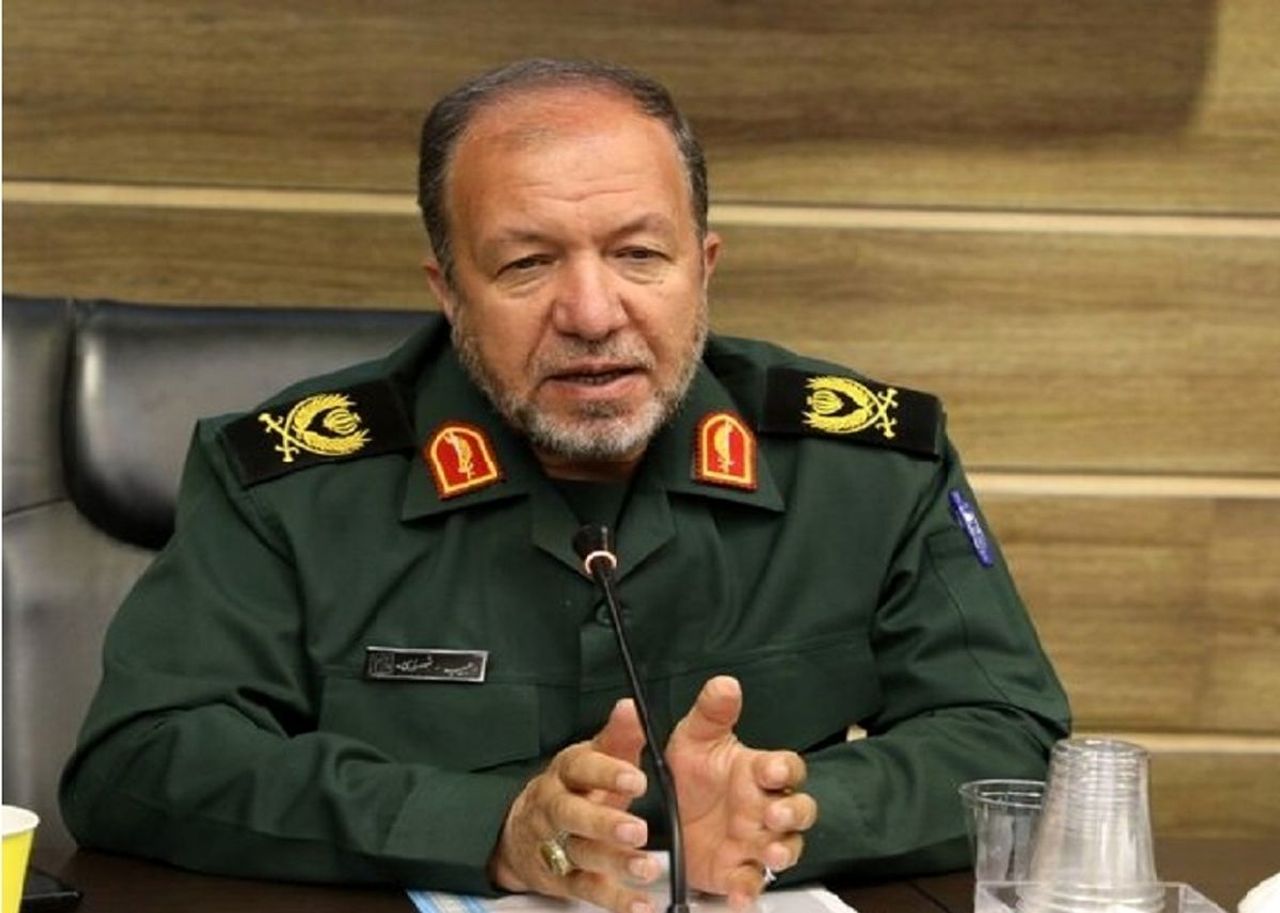
Mohsen Karimi is the internationally designated commander of the Ruhollah Corps of the Islamic Revolutionary Guard Corps (IRGC) in Iran’s Markazi province. He is accused of overseeing serious human rights violations by soldiers under his command.“CONSOLIDATED LIST OF FINANCIAL SANCTIONS TARGETS IN THE UK,” HM Treasury, last updated April 24, 2023, https://assets.publishing.service.gov.uk/government/uploads/system/uploads/attachment_data/file/1152335/Iran__Human_Rights_.pdf. He holds the rank of brigadier general.Official Journal of the European Union, “COUNCIL IMPLEMENTING DECISION (CFSP) 2022/2433 of 12 December 2022 implementing Decision 2011/235/CFSP concerning restrictive measures directed against certain persons and entities in view of the situation in Iran,” EUR-Lex, December 12, 2022, https://eur-lex.europa.eu/legal-content/EN/TXT/PDF/?uri=CELEX:32022D2433&from=EN.
The United Kingdom accuses Karimi of complicity in the violation of the rights of freedom of expression and peaceful assembly. He is also accused of violating Iranians’ rights against torture or cruel, inhuman, or degrading treatment or punishment. Through his role in the IRGC, Karimi has been responsible for the arbitrary arrest and detention of individuals in Iran.“CONSOLIDATED LIST OF FINANCIAL SANCTIONS TARGETS IN THE UK,” HM Treasury, last updated April 24, 2023, https://assets.publishing.service.gov.uk/government/uploads/system/uploads/attachment_data/file/1152335/Iran__Human_Rights_.pdf. Karimi is reportedly responsible for the violent repression of protests. Under his command, 19-year-old protester Mehrshad Shahidi was reportedly beaten to death in an IRGC detention center after his October 25, 2022, arrest in Arak, Iran. Iranian officials reportedly pressured Shahidi’s family to say he died of a heart attack. “UK Slaps Sanctions On IRGC Commanders Over Human Rights Violations,” Iran International, April 24, 2023, https://www.iranintl.com/en/202304247968; “Protests Flare Up At Funeral Of Young Man Killed By Iran’s IRGC,” Iran International, October 29, 2022, https://www.iranintl.com/en/202210294915; Jamie Phillips, “Celebrity chef dubbed the ‘Jamie Oliver of Iran’ is battered to death in police custody days before his 20th birthday - triggering another wave of unrest in the country first sparked by killing of Mahsa Amini,” Daily Mail (London), October 29, 2022, https://www.dailymail.co.uk/news/article-11369621/Teenage-chef-dubbed-Jamie-Oliver-Iran-beaten-death-triggering-wave-unrest.html. The European Union accuses Karimi of “serious human rights violations in Iran.”Official Journal of the European Union, “COUNCIL IMPLEMENTING DECISION (CFSP) 2022/2433 of 12 December 2022 implementing Decision 2011/235/CFSP concerning restrictive measures directed against certain persons and entities in view of the situation in Iran,” EUR-Lex, December 12, 2022, https://eur-lex.europa.eu/legal-content/EN/TXT/PDF/?uri=CELEX:32022D2433&from=EN.

The European Union added Mohsen Karimi to its sanctions list on December 12, 2022.Official Journal of the European Union, “COUNCIL IMPLEMENTING DECISION (CFSP) 2022/2433 of 12 December 2022 implementing Decision 2011/235/CFSP concerning restrictive measures directed against certain persons and entities in view of the situation in Iran,” EUR-Lex, December 12, 2022, https://eur-lex.europa.eu/legal-content/EN/TXT/PDF/?uri=CELEX:32022D2433&from=EN.

The United Kingdom added Mohsen Karimi to its sanctions list on April 24, 2023.“CONSOLIDATED LIST OF FINANCIAL SANCTIONS TARGETS IN THE UK,” HM Treasury, last updated April 24, 2023, https://assets.publishing.service.gov.uk/government/uploads/system/uploads/attachment_data/file/1152335/Iran__Human_Rights_.pdf.
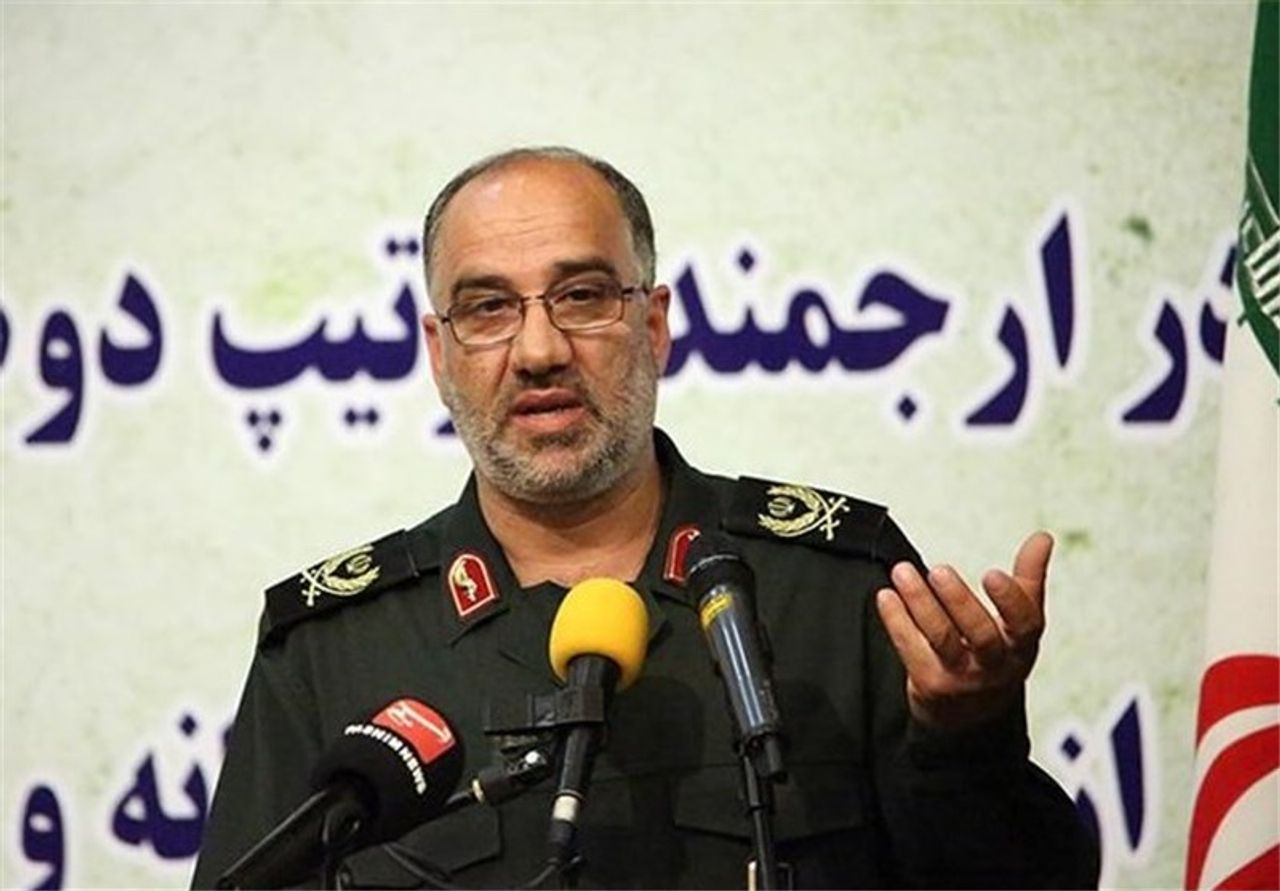
Mohammad Nazar Azimi is the internationally designated Islamic Revolutionary Guard Corps (IRGC) commander of the Najaf Ashraf West Headquarters, which oversees the Iranian provinces of Kermanshah, Hamadan, and Ilam.“CONSOLIDATED LIST OF FINANCIAL SANCTIONS TARGETS IN THE UK,” HM Treasury, last updated April 24, 2023, https://assets.publishing.service.gov.uk/government/uploads/system/uploads/attachment_data/file/1152335/Iran__Human_Rights_.pdf. He holds the rank of brigadier general.“Iran-related Designations and Designation Update; Non-Proliferation Designation Update; Counter Terrorism Designation Update,” U.S. Department of the Treasury, January 23, 2023, https://ofac.treasury.gov/recent-actions/20230123. According to the United States, forces under the command of Azimi and his deputy, Kourosh Asiabani, “have committed some of the worst acts of violence by Iranian security forces since the beginning of protests in September 2022.”“Treasury Sanctions the IRGC Cooperative Foundation and Senior Iranian Officials Connected to Protest Suppression,” U.S. Department of the Treasury, January 23, 2023, https://home.treasury.gov/news/press-releases/jy1209.
In September 2022, the IRGC joined in violently suppressing protests that erupted after the September 16 death of Mahsa Amini, a 22-year-old Kurdish woman who died in custody after being detained by Tehran’s morality police, the Guidance Patrol, earlier in the month. The Guidance Patrol sent Amini to a detention center to undergo re-education when they claimed she was not wearing a hijab properly. She died three days later. In response, protests erupted across the country against Iran’s theocratic rule. The IRGC aided in suppressing the protests, leading to violent clashes with protesters. At least 522 protesters have been killed since the protests began in September 2022.Arsalan Shahla, “Iran Launches Artillery Against Militants in Northern Iraq,” September 24, 2022, https://www.bloomberg.com/news/articles/2022-09-24/iran-launches-artillery-against-militants-in-northern-iraq?leadSource=uverify%20wall; “IRGC will not hesitate to target origin of any anti-Iran operation wherever it may be: General,” Press TV, September 27, 2022, https://www.presstv.ir/Detail/2022/09/27/689915/IRGC-will-not-hesitate-target-origin-any-anti-Iran-operation-General; Caitlin McFall, “The Guardian Patrol sent Amini to a detention center to undergo re-education when they claimed she was not wearing a hijab properly. She died three days later.,” Fox News, September 24, 2022, https://www.foxnews.com/world/protestors-clash-revolutionary-guard-northern-iran-torch-irgc-base-reports; “Iran’s Guards Break Their Silence, Warn Protesters,” Iran International, September 22, 2022, https://www.iranintl.com/en/202209229946; “Lebanon’s Hezbollah Helping Iran In Its Pro-Government Propaganda,” Iran International, October 9, 2022, https://www.iranintl.com/en/202210091141; Vivian Yee and Farnaz Fassihi, “Iran Has Abolished Morality Police, an Official Suggests, After Months of Protests,” New York Times, last updated December 5, 2022, https://www.nytimes.com/2022/12/04/world/middleeast/iran-morality-police.html; Patrick Wintour and Maryam Foumani, “Iran: mass strike starts amid mixed messages around abolishment of morality police,” Guardian (London), December 5, 2022, https://www.theguardian.com/world/2022/dec/05/iran-strike-abolishment-morality-police; Agence France-Presse, “At least 522 Have Died in Iran Protests, Human Rights Report Says,” Radio Free Europe/Radio Liberty, January15, 2023, https://www.rferl.org/a/iran-protests-death-count-human-rights-report/32224340.html#:~:text=At%20least%20522%20people%20have,security%20forces%2C%20the%20agency%20reported.
According to the U.S. government, forces under Azimi’s command used live ammunition against protesters in the town of Javanrud in Kermanshah province. The IRGC has also shelled vehicles attempting to deliver blood bags to local hospitals. According to the U.S. government, witnesses have personally linked Azimi to these incidents. “Treasury Sanctions the IRGC Cooperative Foundation and Senior Iranian Officials Connected to Protest Suppression,” U.S. Department of the Treasury, January 23, 2023, https://home.treasury.gov/news/press-releases/jy1209. The United Kingdom accuses Azimi of complicity in “serious human rights violations,” including violations of the right to life, freedom of expression, and peaceful assembly. The United Kingdom also accuses Azimi of violating the right to not be subjected to torture or cruel, inhuman, or degrading treatment or punishment.“CONSOLIDATED LIST OF FINANCIAL SANCTIONS TARGETS IN THE UK,” HM Treasury, last updated April 24, 2023, https://assets.publishing.service.gov.uk/government/uploads/system/uploads/attachment_data/file/1152335/Iran__Human_Rights_.pdf.

The United States designated Mohammad Nazar Azimi as a Specially Designated National on January 23, 2023. “Treasury Sanctions the IRGC Cooperative Foundation and Senior Iranian Officials Connected to Protest Suppression,” U.S. Department of the Treasury, January 23, 2023, https://home.treasury.gov/news/press-releases/jy1209.

The European Union added Mohammad Nazar Azimi to its sanction list on January 23, 2023.Official Journal of the European Union, “COUNCIL IMPLEMENTING REGULATION (EU) 2023/152 of 23 January 2023 implementing Regulation (EU) No 359/2011 concerning restrictive measures directed against certain persons, entities and bodies in view of the situation in Iran,” EUR-Lex, January 23, 2023, https://eur-lex.europa.eu/legal-content/EN/TXT/?uri=uriserv%3AOJ.LI.2023.020.01.0001.01.ENG&toc=OJ%3AL%3A2023%3A020I%3ATOC.

Canada added Mohammad Nazar Azimi to its sanctions list on February 23, 2023.“Sanctions – Gross and systematic human rights violations in Iran,” Government of Canada, accessed April 25, 2023, https://www.international.gc.ca/campaign-campagne/iran-sanction/index.aspx?lang=eng.

Australia added Mohammad Nazar Azimi to its sanctions list on March 17, 2023.“Autonomous Sanctions (Designated Persons and Entities and Declared Persons—Thematic Sanctions) Amendment (No. 2) Instrument 2023,” Australian Government, March 17, 2023, https://www.legislation.gov.au/Details/F2023L00271.

The United Kingdom added Mohammad Nazar Azimi to its sanctions list on April 24, 2023.“CONSOLIDATED LIST OF FINANCIAL SANCTIONS TARGETS IN THE UK,” HM Treasury, last updated April 24, 2023, https://assets.publishing.service.gov.uk/government/uploads/system/uploads/attachment_data/file/1152335/Iran__Human_Rights_.pdf.
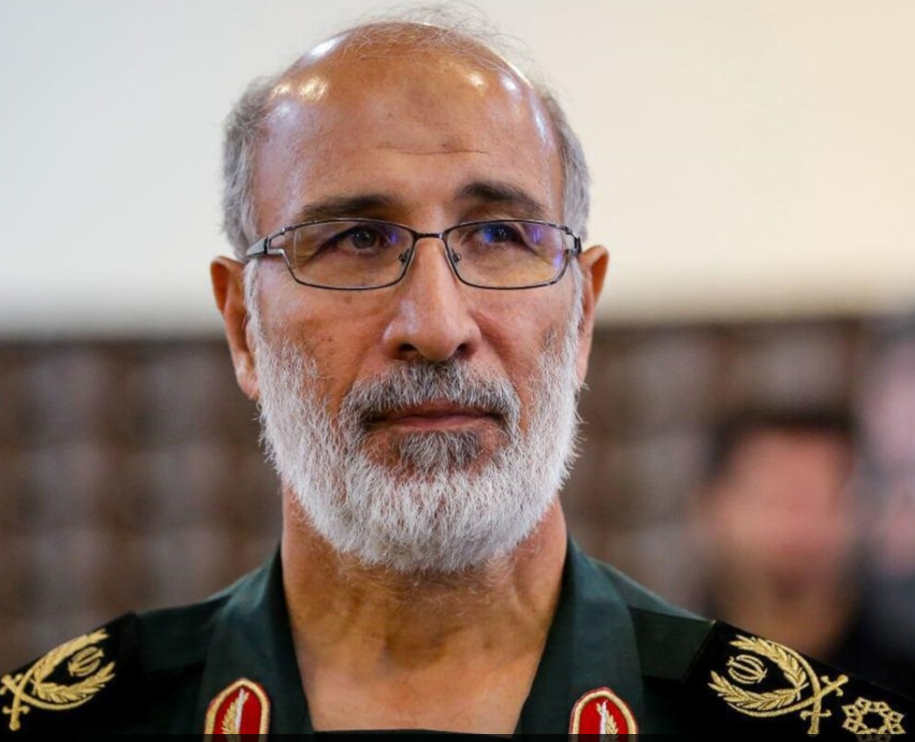
Muhammad Sinwar is Hamas’s leader in the Gaza Strip and the younger brother of deceased Hamas leader Yahya Sinwar. He previously served as the head of Logistics and Man Power for Hamas and one of the top commanders of Hamas’s military wing, the Izz ad-Din al-Qassam Brigades.“Top Hamas commander rumored killed in Gaza,” Times of Israel, July 23, 2014, https://www.timesofisrael.com/liveblog_entry/top-hamas-commander-rumored-killed-in-gaza/; “Israel Gaza conflict: Netanyahu says strikes to ‘continue at full force,’” BBC News, May 16, 2021, www.bbc.com/news/world-middle-east-57131272; “Hamas in Gaza elects ‘Yahya al-Sinwar’ as chief, a man believed to support a harder line against Israel,” TV7 Israel, February 14, 2017, https://www.tv7israelnews.com/hamas-in-gaza-elects-yehya-al-sinwar-as-chief-a-man-believed-to-support-a-harder-line-against-israel/. Israeli authorities suspect Sinwar of direct involvement in the 2006 abduction of Israel Defense Force (IDF) soldier Gilad Shalit, who was held captive in the Gaza Strip until 2011.“Top Hamas commander rumored killed in Gaza,” Times of Israel, July 23, 2014, https://www.timesofisrael.com/liveblog_entry/top-hamas-commander-rumored-killed-in-gaza/. Hamas announced Sinwar as its new Gaza leader on January 13, 2025.Summer Said, Anat Peled, and Rory Jones, “Hamas Has Another Sinwar. And He’s Rebuilding.,” Wall Street Journal, January 13, 2025, https://www.wsj.com/world/middle-east/hamas-has-another-sinwar-and-hes-rebuilding-0a16031d.
Sinwar previously served as the Qassam Brigades commander in Gaza’s Khan Younis area.“The HAMAS Terror Organization - 2007 update,” Israel Ministry of Foreign Affairs, May 6, 2008, https://www.gov.il/en/Departments/General/the-hamas-terror-organization-2007-update. On June 25, 2006, Palestinian militants from Hamas and other groups crossed into Israel from Gaza through an underground tunnel and attacked an IDF outpost in Israel. They killed two soldiers and took Shalit hostage.Tim Butcher, “Soldier Kidnapped and Two Killed in Gaza Tunnel Attack,” Telegraph (London), June 26, 2006, http://www.telegraph.co.uk/news/worldnews/middleeast/israel/1522370/Soldier-kidnapped-and-two-killed-in-Gaza-tunnel-attack.html; Steven Erlanger, “Tensions Rise After Israeli Is Kidnapped,” New York Times, June 26, 2006, http://www.nytimes.com/2006/06/26/world/middleeast/26cnd-mideast.html. Hamas held Shalit captive in Gaza until it negotiated a prisoner exchange with Israel in 2011. Israel accuses Sinwar being one of the raid’s lead planners. Sinwar also reportedly personally held Shalit captive for some time. “Top Hamas commander rumored killed in Gaza,” Times of Israel, July 23, 2014, https://www.timesofisrael.com/liveblog_entry/top-hamas-commander-rumored-killed-in-gaza/. On October 18, 2011, Hamas freed Shalit in exchange for 1,027 Israeli-held prisoners, mainly Palestinians and Arab-Israelis. Sinwar reportedly insisted the prisoner exchange include his brother, Yahya Sinwar, who was serving a life sentence in Israel. The elder Sinwar was the most senior leader freed in the swap.Jeffrey Heller and Nidal al-Mughrabi, “Israel and Hamas Agree Prisoner Swap to Free Shalit,” Reuters, October 11, 2011, http://www.reuters.com/article/2011/10/11/us-israel-palestinians-shalit-idUSTRE79A58R20111011; Avi Issacharoff and Aimee Amiga, “Prisoners Deported Under Shalit Deal Arrive in Turkey, Syria, Jordan, and Qatar,” Haaretz (Tel Aviv), October 19, 2011, https://www.haaretz.com/1.5201410; Shlomi Eldar, “How Hamas’ new Gaza leader came to power,” Al-Monitor, February 14, 2017, https://www.al-monitor.com/originals/2017/02/gaza-palestinians-hamas-israel-mohammed-al-deif-yahya-sinwar.html.
Between May 9 and May 20, 2021, Hamas and Palestinian Islamic Jihad (PIJ) launched more than 4,000 rockets toward Israel. Israel bombed Hamas targets throughout the Gaza Strip in retaliation.Seth J. Frantzman, “IRGC head praises Hamas commander Deif as ‘living martyr’ – analysis,” Jerusalem Post, May 20, 2021, https://www.jpost.com/arab-israeli-conflict/irgc-head-praises-hamas-commander-deif-as-living-martyr-analysis-668656; Fares Akram and Joseph Krauss, “Israel unleashes strikes as expectations for truce rise,” Associated Press, May 20, 2021, https://apnews.com/article/gaza-israel-middle-east-israel-palestinian-conflict-caac81bc36fe9be67ac2f7c27000c74b; Anna Ahronheim, “Rocket fire continues despite talk of an imminent ceasefire,” Jerusalem Post, May 20, 2021, https://www.jpost.com/arab-israeli-conflict/rocket-strikes-ashkelon-house-leaving-26-year-old-with-light-injuries-668657; “Hamas says Gaza truce with Israel to begin at 2 a.m on Friday,” Reuters, May 20, 2021, https://www.reuters.com/world/middle-east/israeli-cabinet-approves-gaza-truce-yedioth-ahronoth-reporter-says-2021-05-20/. Early on May 16, 2021, Israeli airstrikes targeted Sinwar’s home in Gaza’s Khan Younis. Israel accused Sinwar of conducting terrorist activities from the house, which was empty at the time of the strike. Israel also struck the Gaza home of Yahya Sinwar, which was also empty at the time.“Heavy rocket fire hits center, south; Hamas leader’s home targeted in IAF strike,” Times of Israel, May 16, 2021, https://www.timesofisrael.com/heavy-rocket-fire-hits-center-south-hamas-leaders-home-targeted-in-iaf-strike/. A year later, Sinwar admitted in an interview with Al Jazeera Hamas had attempted to kidnap Israeli soldiers to use as bargaining chips but failed. He also revealed Palestinian militants had set up a joint command center in Gaza during the conflict, holding meetings with Hezbollah and Iran’s Islamic Revolutionary Guard Corps. “Brother of Hamas leader Sinwar: Firing rockets at Tel Aviv as easy as drinking water,” Times of Israel, May 29, 2022, https://www.timesofisrael.com/brother-of-hamas-leader-sinwar-firing-rockets-at-tel-aviv-as-easy-as-drinking-water/.
On October 7, 2023, Hamas launched a mass attack on Israel, sending hundreds of fighters into Israeli towns and military bases within 15 miles of the Gaza border while simultaneously launching a rocket barrage toward Israel. Hamas killed 1,200 people and took another 251 captive.Josef Federman and Issam Adwan, “Hamas surprise attack out of Gaza stuns Israel and leaves hundreds dead in fighting, retaliation,” Associated Press, October 7, 2023, https://apnews.com/article/israel-palestinians-gaza-hamas-rockets-airstrikes-tel-aviv-11fb98655c256d54ecb5329284fc37d2; Josef Federman and Issam Adwan, “Hamas surprise attack out of Gaza stuns Israel and leaves hundreds dead in fighting, retaliation,” Associated Press, October 7, 2023, https://apnews.com/article/israel-palestinians-gaza-hamas-rockets-airstrikes-tel-aviv-11fb98655c256d54ecb5329284fc37d2. Hamas labeled the attack Operation Al-Aqsa Flood.“Operation Al Aqsa Flood,” Hamas Online, Telegram, October 7, 2023. Following the attack, Israel issued an official declaration of war against Hamas and vowed to cripple the terrorist organization.Tia Goldenberg and Wafaa Shurafa, “Israel declares war, bombards Gaza and battles to dislodge Hamas fighters after surprise attack,” Associated Press, October 8, 2023, https://apnews.com/article/israel-palestinians-gaza-hamas-rockets-airstrikes-tel-aviv-ca7903976387cfc1e1011ce9ea805a71.
The ensuing war continued into 2025, leaving thousands dead and Gaza decimated. On October 16, 2024, Israel announced the death of Hamas leader and architect of the 10/7 attacks Yahya Sinwar following a firefight with Israeli soldiers on patrol in Gaza’s Rafah. Israeli recovered the body and confirmed Sinwar’s identity after DNA and dental testing.Mark Mazzetti, Natan Odenheimer, Aaron Boxerman, Ronen Bergman, and Adam Goldman, “Sinwar’s Final Moments: On the Run, Hurt, Alone, but Still Defiant,” New York Times, last updated October 19, 2024, https://www.nytimes.com/2024/10/18/world/middleeast/yahya-sinwar-final-moments-gaza.html. On January 13, 2025, Hamas appointed the younger Sinwar as its new leader in Gaza. According to media reports, Sinwar had already begun attempting to rebuild Hamas’s strength in Gaza and recruit new members.Summer Said, Anat Peled, and Rory Jones, “Hamas Has Another Sinwar. And He’s Rebuilding.,” Wall Street Journal, January 13, 2025, https://www.wsj.com/world/middle-east/hamas-has-another-sinwar-and-hes-rebuilding-0a16031d.

Yadollah Javani is the U.S.-designated deputy political commander of Iran’s Islamic Revolutionary Guard Corps (IRGC).“Treasury Sanctions Iranian Leaders Responsible for Internet Shutdown and Violent Crackdown on Peaceful Protests,” U.S. Department of the Treasury, October 6, 2022, https://home.treasury.gov/news/press-releases/jy0994. On October 6, 2022, the U.S. Department of the Treasury designated Javani as a Specially Designated National (SDN) for his role in acting on behalf of the IRGC and engaging in serious human rights abuses.“Treasury Sanctions Iranian Leaders Responsible for Internet Shutdown and Violent Crackdown on Peaceful Protests,” U.S. Department of the Treasury, October 6, 2022, https://home.treasury.gov/news/press-releases/jy0994.
Javani is a veteran of the IRGC, an Iranian government agency tasked with defending the regime against internal and external threats. Before or around 2011, Javani took on the role of the IRGC’s political bureau chief. Accordingly, while in this role, the EU claims Javani repeatedly supported the use of violence and harsh interrogation tactics against protesters. Additionally, publications circulated among IRGC circles refer to Javani reportedly instructing security officials to carry out extrajudicial maltreatment of dissidents. “CONSOLIDATED LIST OF FINANCIAL SANCTIONS TARGETS IN THE UK,” Office of Financial Sanctions Implementation HM Treasury, October 10, 2022, https://assets.publishing.service.gov.uk/government/uploads/system/uploads/attachment_data/file/1110024/Iran__Human_Rights_.pdf. Due to his violent actions and standards, the EU sanctioned Javani on October 10, 2011.“REGULATIONS COUNCIL IMPLEMENTING REGULATION (EU) No 1002/2011 of 10 October 2011 implementing Article 12(1) of Regulation (EU) No 359/2011 concerning restrictive measures directed against certain persons, entities and bodies in view of the situation in Iran,” Official Journal of the European Union, October 12, 2011, https://eur-lex.europa.eu/LexUriServ/LexUriServ.do?uri=OJ:L:2011:267:0001:0006:EN:PDF.
Nonetheless, Javani continued to advance throughout the IRGC and served as advisor to Supreme Leader Ali Khamenei’s representative at the IRGC from at least July 6, 2017. Following that role, Javani reportedly started serving as deputy political commander sometime around March 2018.“Iran's Revolutionary Guards deny giving missiles to Houthis - Tasnim news,” Tasnim News, March 27, 2018, https://www.reuters.com/article/uk-yemen-houthi-iran-idAFKBN1H30XT.
Given Javani’s continued affiliation with the IRGC, on December 31, 2020, the United Kingdom sanctioned Javani for not only suppressing free speech and discourse through supporting the arrest and punishment of protestors and dissenters, but also having knowledge of the IRGC’s harsh interrogation techniques to force confessions.“CONSOLIDATED LIST OF FINANCIAL SANCTIONS TARGETS IN THE UK,” Office of Financial Sanctions Implementation HM Treasury, October 10, 2022, https://assets.publishing.service.gov.uk/government/uploads/system/uploads/attachment_data/file/1110024/Iran__Human_Rights_.pdf.
In September 2022, the IRGC and the Basij joined in violently suppressing protests that erupted after the September 16 death of Mahsa Amini, a 22-year-old Kurdish woman who died in custody after being detained by Tehran’s morality police, the Guidance Patrol, earlier in the month. The Guidance Patrol sent Amini to a detention center to undergo re-education when they claimed she was not wearing a hijab properly. She died three days later. In response, protests erupted across the country against Iran’s theocratic rule. On September 22, the IRGC issued a statement of support for Iranian police in combating the protests and accused protesters of sedition. At least 201 protesters were killed since the protests began after confrontations with Iranian security forces, but information has been limited due to disrupted and limited Internet access throughout the country.Arsalan Shahla, “Iran Launches Artillery Against Militants in Northern Iraq,” September 24, 2022, Bloomberg, https://www.bloomberg.com/news/articles/2022-09-24/iran-launches-artillery-against-militants-in-northern-iraq; “Exclusive: IRGC Commanders’ Families Placed in Tehran ‘Safe House,” Iran Wire, September 26, 2022, https://iranwire.com/en/iran/107958-exclusive-irgc-commanders-families-placed-in-tehran-safe-house; “IRGC will not hesitate to target origin of any anti-Iran operation wherever it may be: General,” Press TV, September 27, 2022, https://www.presstv.ir/Detail/2022/09/27/689915/IRGC-will-not-hesitate-target-origin-any-anti-Iran-operation-General; Caitlin McFall, “The Guardian Patrol sent Amini to a detention center to undergo re-education when they claimed she was not wearing a hijab properly. She died three days later.,” Fox News, September 24, 2022, https://www.foxnews.com/world/protestors-clash-revolutionary-guard-northern-iran-torch-irgc-base-reports; “Iran’s Guards Break Their Silence, Warn Protesters,” Iran International, September 22, 2022, https://www.iranintl.com/en/202209229946; Parisa Hafezi, “Iranians keep up protests over Mahsa Amini death despite mounting fatalities,” Reuters, October 12, 2022, https://www.reuters.com/world/middle-east/iranians-keep-up-protests-over-mahsa-amini-death-despite-growing-death-toll-2022-10-12.
Given the IRGC’s violent crackdown on protestors, on October 6, 2022, the U.S. Treasury Department designated Javani as an SDN for acting on behalf of the IRGC.“Iran-related Designations and Designation Update; Non-Proliferation Designation Update; Burma-related Designations,” U.S. Department of the Treasury, October 6, 2022, https://home.treasury.gov/policy-issues/financial-sanctions/recent-actions/20221006.

The U.S. Department of the Treasury designated Yadollah Javani as as a Specially Designated National on October 6, 2022.“Iran-related Designations and Designation Update; Non-Proliferation Designation Update; Burma-related Designations,” U.S. Department of the Treasury, October 6, 2022, https://home.treasury.gov/policy-issues/financial-sanctions/recent-actions/20221006.

On October 10, 2011, the EU added Yadollah Javani to its sanctions list for his role in supporting the use of violence and harsh interrogation tactics against protesters and dissidents.“COUNCIL REGULATION (EU) No 359/2011 of 12 April 2011 concerning restrictive measures directed against certain persons, entities and bodies in view of the situation in Iran,” Official Journal of the European Union, April 12, 2011, https://eur-lex.europa.eu/legal-content/EN/TXT/HTML/?uri=CELEX:32011R0359&from=EN.

On December 31, 2020, the U.K. added Yadollah Javani to its sanctions list for his role in suppressing free speech and discourse through supporting the arrest and punishment of protestors and dissenters.“CONSOLIDATED LIST OF FINANCIAL SANCTIONS TARGETS IN THE UK,” Office of Financial Sanctions Implementation HM Treasury, October 10, 2022, https://assets.publishing.service.gov.uk/government/uploads/system/uploads/attachment_data/file/1110024/Iran__Human_Rights_.pdf.
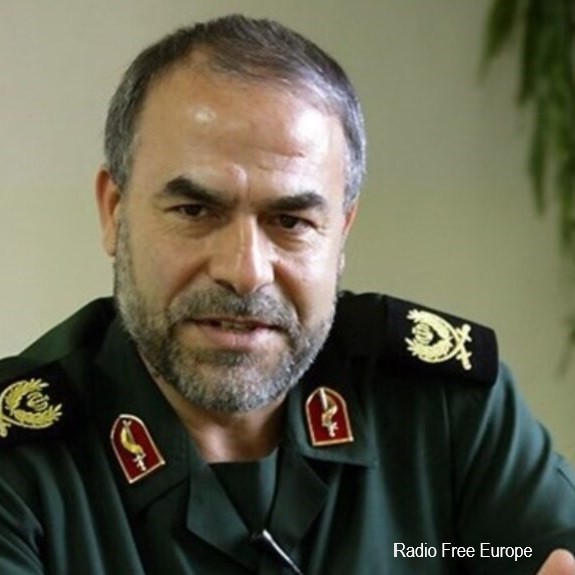
Hossein Nejat is a U.S.-designated commander within Iran’s Islamic Revolutionary Guard Corps (IRGC). On October 6, 2022, the U.S. Department of the Treasury designated Nejat as a Specially Designated National (SDN) for acting on behalf of the IRGC.“Designating Iran’s Morality Police and Seven Officials for Human Rights Abuses in Iran,” U.S. Department of the Treasury, September 22, 2022, https://www.state.gov/designating-irans-morality-police-and-seven-officials-for-human-rights-abuses-in-iran.
Nejat is a close associate of Iran’s Supreme Leader, Ayatollah Ali Khamenei, and a veteran member of the IRGC, an Iranian government agency tasked with defending the regime against internal and external threats. In the 1980s, Nejat served as the counterintelligence chief of Khatam ol-Anbia, one of Iran’s most important headquarters during the Iran-Iraq war. Nejat has reportedly taken on a variety of roles throughout the IRGC and its partner groups, and in 2000, he served as the commander of IRGC’s Vali Amr Unit. The unit, which Nejat commanded for ten years, is reportedly Khamenei’s own special guard. While in the role, Nejat was a key figure in suppressing the 2009 election protests in Tehran.Morad Vaisibiame, “A New Appointment At IRGC May Signal Concern Over Unrest In Iran,” Radio Farda, June 21, 2020, https://en.radiofarda.com/a/a-new-appointment-at-irgc-may-signal-concern-of-unrest-in-iran/30682662.html.
Nejat went on to be a commander of the Muslim Combatants Association, which is an affiliate of the IRGC that operates throughout Iran. The IRGC continued to elevate Nejat’s profile, and in 2016, Nejat was appointed as a senior deputy to IRGC intelligence chief Hossein Taeb. Nejat stayed in the role until 2019.Morad Vaisibiame, “A New Appointment At IRGC May Signal Concern Over Unrest In Iran,” Radio Farda, June 21, 2020, https://en.radiofarda.com/a/a-new-appointment-at-irgc-may-signal-concern-of-unrest-in-iran/30682662.html.
In 2019, Nejat became the IRGC’s deputy commander for cultural affairs, a position he held until June 21, 2020, when IRGC Commander Major General Hossein Salami appointed Nejat as deputy commander of Sarallah. According to media sources, Sarallah is critical to Tehran’s security as the security apparatus is responsible for protecting the capital and governmental institutions against any threats such as coups or anti-government protests.“Treasury Sanctions Iranian Leaders Responsible for Internet Shutdown and Violent Crackdown on Peaceful Protests,” U.S. Department of the Treasury, October 6, 2022, https://home.treasury.gov/news/press-releases/jy0994; Morad Vaisibiame, “A New Appointment At IRGC May Signal Concern Over Unrest In Iran,” Radio Farda, June 21, 2020, https://en.radiofarda.com/a/a-new-appointment-at-irgc-may-signal-concern-of-unrest-in-iran/30682662.html. As the deputy head of Sarallah, Nejat and the command directly under his supervision, are tasked with quelling anti-government protests.“Treasury Sanctions Iranian Leaders Responsible for Internet Shutdown and Violent Crackdown on Peaceful Protests,” U.S. Department of the Treasury, October 6, 2022, https://home.treasury.gov/news/press-releases/jy0994.
In September 2022, the IRGC and the Basij—a paramilitary organization charged with channeling popular support for the Iranian regime—joined in violently suppressing protests that erupted after the September 16 death of Mahsa Amini, a 22-year-old Kurdish woman who died in custody after being detained by Tehran’s morality police, the Guidance Patrol, earlier in the month. The Guidance Patrol sent Amini to a detention center to undergo re-education when they claimed she was not wearing a hijab properly. She died three days later. In response, protests erupted across the country against Iran’s theocratic rule. On September 22, the IRGC issued a statement of support for Iranian police in combating the protests and accused protesters of sedition. At least 201 protesters were killed since the protests began after confrontations with Iranian security forces, but information has been limited due to disrupted and limited Internet access throughout the country.Arsalan Shahla, “Iran Launches Artillery Against Militants in Northern Iraq,” Bloomberg, September 24, 2022, https://www.bloomberg.com/news/articles/2022-09-24/iran-launches-artillery-against-militants-in-northern-iraq; “Exclusive: IRGC Commanders’ Families Placed in Tehran ‘Safe House,” Iran Wire, September 26, 2022, https://iranwire.com/en/iran/107958-exclusive-irgc-commanders-families-placed-in-tehran-safe-house; “IRGC will not hesitate to target origin of any anti-Iran operation wherever it may be: General,” Press TV, September 27, 2022, https://www.presstv.ir/Detail/2022/09/27/689915/IRGC-will-not-hesitate-target-origin-any-anti-Iran-operation-General; Caitlin McFall, “The Guardian Patrol sent Amini to a detention center to undergo re-education when they claimed she was not wearing a hijab properly. She died three days later.,” Fox News, September 24, 2022, https://www.foxnews.com/world/protestors-clash-revolutionary-guard-northern-iran-torch-irgc-base-reports; “Iran’s Guards Break Their Silence, Warn Protesters,” Iran International, September 22, 2022, ; Parisa Hafezi, “Iranians keep up protests over Mahsa Amini death despite mounting fatalities,” Reuters, October 12, 2022, https://www.reuters.com/world/middle-east/iranians-keep-up-protests-over-mahsa-amini-death-despite-growing-death-toll-2022-10-12.
Given Nejat’s four-decade tenure working in various capacities for the IRGC, on October 6, 2022, the U.S. Department of the Treasury designated Nejat for acting on behalf of the IRGC.“Iran-related Designations and Designation Update; Non-Proliferation Designation Update; Burma-related Designations,” U.S. Department of the Treasury, October 6, 2022, https://home.treasury.gov/policy-issues/financial-sanctions/recent-actions/20221006.

The U.S. Department of the Treasury designated Hossein Nejat as a Specially Designated National on October 6, 2022.“Iran-related Designations and Designation Update; Non-Proliferation Designation Update; Burma-related Designations,” U.S. Department of the Treasury, October 6, 2022, https://home.treasury.gov/policy-issues/financial-sanctions/recent-actions/20221006.
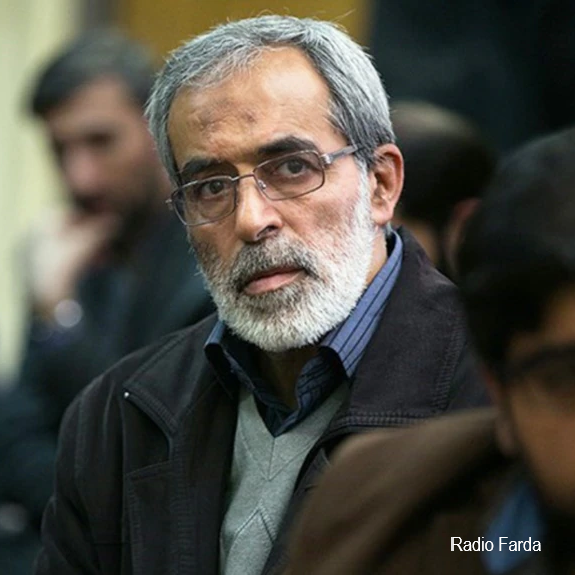
Ahmad Vahidi is the U.S.-designated minister of the interior of Iran.“Treasury Sanctions Iranian Leaders Responsible for Internet Shutdown and Violent Crackdown on Peaceful Protests,” U.S. Department of the Treasury, October 6, 2022, https://home.treasury.gov/news/press-releases/jy0994. The U.S. Department of the Treasury first designated Vahidi as a Specially Designated National (SDN) on June 16, 2010, for ties to Iran’s nuclear and weapons of mass destruction (WMD) programs. The Treasury Department later amended Vahidi’s designation on October 6, 2022, for his role in ordering or controlling the commission of serious human rights abuses against Iranian citizens or residents.“Treasury Sanctions Iranian Leaders Responsible for Internet Shutdown and Violent Crackdown on Peaceful Protests,” U.S. Department of the Treasury, October 6, 2022, https://home.treasury.gov/news/press-releases/jy0994.
Following the Iranian Revolution in 1979, Vahidi joined the Islamic Revolutionary Guard Corps (IRGC), an Iranian government agency tasked with defending the regime against internal and external threats. A couple of years later, in 1981, Vahidi was appointed deputy chief of intelligence. During that time, Vahidi simultaneously held the role of commander of the Balaal base, which was reportedly used for planning and directing operations outside of Iran.Muhammad Sahimi, “The IRGC Strategic Brain Trust | Part 1: Ghasem Soleimani and Ahmad Vahidi,” August 1, 2012, https://www.pbs.org/wgbh/pages/frontline/tehranbureau/2012/08/the-guards-strategic-brain-trust-part-1-ghasem-soleimani-and-ahmad-vahidi.html.
Vahidi later joined the IRGC-Quds Force (IRGC-QF) in 1983. Supreme Leader Ayatollah Khamenei was reportedly impressed by Vahidi’s performance, and appointed Vahidi as commander of the IRGC-QF in 1990. During his tenure with the IRGC-QF, Vahidi was allegedly involved in the bombing of a Jewish cultural center in Buenos Aires, Argentina, on July 18, 1994. The explosion killed 85 people and wounded 250. Vahidi was later connected to the bombings after two Argentine prosecutors accused the Islamic Republic of directing the operation. In November 2007, Interpol placed Vahidi, along with six other people, on the Interpol Red Notice List.Muhammad Sahimi, “The IRGC Strategic Brain Trust | Part 1: Ghasem Soleimani and Ahmad Vahidi,” August 1, 2012, https://www.pbs.org/wgbh/pages/frontline/tehranbureau/2012/08/the-guards-strategic-brain-trust-part-1-ghasem-soleimani-and-ahmad-vahidi.html; “INTERPOL General Assembly upholds Executive Committee decision on AMIA Red Notice dispute,” INTERPOL, November 7, 2007, https://www.interpol.int/en/News-and-Events/News/2007/INTERPOL-General-Assembly-upholds-Executive-Committee-decision-on-AMIA-Red-Notice-dispute.
Despite his connection to the bombing, Vahidi held the role of commander of the IRGC-QF until 1997 when he was transferred to the Ministry of Defense. At the ministry, Vahidi was appointed deputy minister for planning. He held that role until 2005 when he was appointed as chief deputy to the defense minister.Muhammad Sahimi, “The IRGC Strategic Brain Trust | Part 1: Ghasem Soleimani and Ahmad Vahidi,” August 1, 2012, https://www.pbs.org/wgbh/pages/frontline/tehranbureau/2012/08/the-guards-strategic-brain-trust-part-1-ghasem-soleimani-and-ahmad-vahidi.html.
Beginning in September 2009, Vahidi served as Iran’s minister of defense and armedforces logistics (MODAFL). MODAFL has ultimate authority over Iran’s Aerospace Industries Organization (AIO) and Iran’s Defense Industries Organization (DIO). During his four-year term as defense minister, Vahidi pushed to produce a wide range of conventional weapons, including tanks, fighter planes, missiles, and armored personnel carriers.“Ahmad Vahidi: Islamic Republic of Iran Minister of Interior,” United Against Nuclear Iran, https://www.unitedagainstnucleariran.com/ahmad-vahidi-islamic-republic-of-iran-minister-of-interior; “Fact Sheet: U.S. Treasury Department Targets Iran’s Nuclear and Missile Programs,” U.S. Department of the Treasury, June 16, 2010, https://home.treasury.gov/news/press-releases/tg747. Shortly after his appointment, Vahidi was designated as an SDN by the U.S. Department of the Treasury on June 16, 2010. The designation was due to Vahidi’s ties to Iran’s nuclear and WMD programs.“Fact Sheet: U.S. Treasury Department Targets Iran’s Nuclear and Missile Programs,” U.S. Department of the Treasury, June 16, 2010, https://home.treasury.gov/news/press-releases/tg747.
Between 2013 and 2016, Vahidi directed the Defense Strategic Research Center, the research arm of the Armed Forces General Staff. In 2014, Supreme Leader Ayatollah Ali Khamenei appointed Vahidi as a Foreign Affairs Strategic Council advisory body member. In 2016, he left the Defense Strategic Research Center to direct the Supreme National Defense University.“Ahmad Vahidi: Islamic Republic of Iran Minister of Interior,” United Against Nuclear Iran, https://www.unitedagainstnucleariran.com/ahmad-vahidi-islamic-republic-of-iran-minister-of-interior.
Vahidi was appointed Iran’s minister of the interior in August 2021.“Foreign Ministry condemns appointment of new Iranian interior minister,” Jerusalem Post, August 11, 2021, https://www.jpost.com/breaking-news/iran-appoints-new-interior-minister-wanted-by-interpol-676458. As interior minister, Vahidi maintains oversight over all Law Enforcement Forces (LEF) deployed to subdue protests in Iran. The LEF is notorious for using violence against protestors which has resulted in thousands of deaths.“Treasury Sanctions Iranian Leaders Responsible for Internet Shutdown and Violent Crackdown on Peaceful Protests,” U.S. Department of the Treasury, October 6, 2022, https://home.treasury.gov/news/press-releases/jy0994.
The LEF are one component of Iran’s extensive security apparatus, which among others, includes the IRGC and the Basij. The Basij is a paramilitary organization charged with channeling popular support for the Iranian regime.“Designating Iran’s Morality Police and Seven Officials for Human Rights Abuses in Iran,” U.S. Department of State, September 22, 2022, https://www.state.gov/designating-irans-morality-police-and-seven-officials-for-human-rights-abuses-in-iran. In September 2022, the IRGC and the Basij joined in violently suppressing protests that erupted after the September 16 death of Mahsa Amini, a 22-year-old Kurdish woman who died in custody after being detained by Tehran’s morality police, the Guidance Patrol, earlier in the month. The Guidance Patrol sent Amini to a detention center to undergo re-education when they claimed she was not wearing a hijab properly. She died three days later. In response, protests erupted across the country against Iran’s theocratic rule. On September 22, the IRGC issued a statement of support for Iranian police in combating the protests and accused protesters of sedition. At least 201 protesters were killed since the protests began after confrontations with Iranian security forces, but information has been limited due to disrupted and limited Internet access throughout the country.Arsalan Shahla, “Iran Launches Artillery Against Militants in Northern Iraq,” Bloomberg, September 24, 2022, https://www.bloomberg.com/news/articles/2022-09-24/iran-launches-artillery-against-militants-in-northern-iraq; “Exclusive: IRGC Commanders’ Families Placed in Tehran ‘Safe House,” Iran Wire, September 26, 2022, https://iranwire.com/en/iran/107958-exclusive-irgc-commanders-families-placed-in-tehran-safe-house; “IRGC will not hesitate to target origin of any anti-Iran operation wherever it may be: General,” Press TV, September 27, 2022, https://www.presstv.ir/Detail/2022/09/27/689915/IRGC-will-not-hesitate-target-origin-any-anti-Iran-operation-General; Caitlin McFall, “The Guardian Patrol sent Amini to a detention center to undergo re-education when they claimed she was not wearing a hijab properly. She died three days later.,” Fox News, September 24, 2022, https://www.foxnews.com/world/protestors-clash-revolutionary-guard-northern-iran-torch-irgc-base-reports; “Iran’s Guards Break Their Silence, Warn Protesters,” Iran International, September 22, 2022, https://www.iranintl.com/en/202209229946; Parisa Hafezi, “Iranians keep up protests over Mahsa Amini death despite mounting fatalities,” Reuters, October 12, 2022, https://www.reuters.com/world/middle-east/iranians-keep-up-protests-over-mahsa-amini-death-despite-growing-death-toll-2022-10-12.
Vahidi has publicly warned Iranian women who do not comply with hijab regulations that the government’s security forces will penalize those “breaking rules.” Following the 2022 protests, Vahidi has also explicitly threatened protesters who continue to challenge the regime and has defended the brutal actions of LEF officers in repressing demonstrations.“Treasury Sanctions Iranian Leaders Responsible for Internet Shutdown and Violent Crackdown on Peaceful Protests,” U.S. Department of the Treasury, October 6, 2022, https://home.treasury.gov/news/press-releases/jy0994.
On October 6, 2022, the U.S. Treasury Department amended Vahidi’s designation to include his role in the abuse and violence against Iranian citizens and the violation of the rights of peaceful Iranian protestors.“Treasury Sanctions Iranian Leaders Responsible for Internet Shutdown and Violent Crackdown on Peaceful Protests,” U.S. Department of the Treasury, October 6, 2022, https://home.treasury.gov/news/press-releases/jy0994.

The U.S. Department of the Treasury designated Ahmad Vahidi as a Specially Designated National on June 16, 2010, and amended his designation on October 6, 2022.span class="footnote">“Treasury Sanctions Iranian Leaders Responsible for Internet Shutdown and Violent Crackdown on Peaceful Protests,” U.S. Department of the Treasury, October 6, 2022, https://home.treasury.gov/news/press-releases/jy0994; “Fact Sheet: U.S. Treasury Department Targets Iran’s Nuclear and Missile Programs,” U.S. Department of the Treasury, June 16, 2010, https://home.treasury.gov/news/press-releases/tg747.
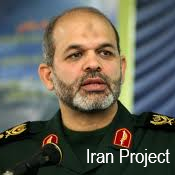
Salar Abnoush is the U.S.-designated deputy commander of the Basij, a paramilitary militia and subsidiary force of Iran’s Islamic Revolutionary Guard Corps (IRGC).“Designating Iran’s Morality Police and Seven Officials for Human Rights Abuses in Iran,” U.S. Department of State, September 22, 2022, https://www.state.gov/designating-irans-morality-police-and-seven-officials-for-human-rights-abuses-in-iran. On September 22, 2022, the U.S. Department of the Treasury designated Abnoush as a Specially Designated National (SDN) for his role in suppressing dissent throughout Iran and engaging in serious human rights abuses.“Designating Iran’s Morality Police and Seven Officials for Human Rights Abuses in Iran,” U.S. Department of State, September 22, 2022, https://www.state.gov/designating-irans-morality-police-and-seven-officials-for-human-rights-abuses-in-iran.
The IRGC is an Iranian government agency tasked with defending the regime against internal and external threats, of which the Basij, literally “mobilization,” is a paramilitary organization charged with channeling popular support for the Iranian regime. The Basij has two missions: to provide defensive military training to protect the regime against foreign invasion, and to suppress domestic anti-regime activity through street violence and intimidation.“Department of Treasury and State Announce Sanctions of Iranian Security Forces for Human Rights Abuses,” U.S. Department of State, June 9, 2011, https://2009-2017.state.gov/r/pa/prs/ps/2011/06/165300.htm.
Abnoush has publicly described his command-and-control role over Basij forces during the November 2019 protests. The Basij have been linked to the killing of unarmed protestors on numerous occasions.“Treasury Sanctions Iran’s Morality Police and Senior Security Officials for Violence Against Protesters and the Death of Mahsa Amini,” U.S. Department of the Treasury, September 22, 2022, https://home.treasury.gov/news/press-releases/jy0969. The November 2019 protests, of which Abnoush described as a “full-scale world war” against the Islamic Republic, were carried out in response to excessive price hikes in petroleum.“Guards' Basij Commander Says Ending Iran Protests ‘A Miracle’,” Radio Farda, November 18, 2019, https://www.rferl.org/a/Irans_Islamic_Militia_Says_It_Will_Confront_Riots/1881256.html. Tens of thousands of people demonstrated on the street leading authorities to implement a near total internet shutdown. The protests resulted in clashes with Iranian security forces and led to the deaths of 321 people.“Iran: Details of 321 deaths in crackdown on November 2019 protests [July 2022 update],” Amnesty International, July 29, 2022, https://www.amnesty.org/en/documents/mde13/2308/2020/en/#:~:text=This%20document%20contains%20the%20details,announcement%20about%20the%20significant%20overnight.
In September 2022, the IRGC and the Basij joined in violently suppressing protests that erupted after the September 16 death of Mahsa Amini, a 22-year-old Kurdish woman who died in custody after being detained by Tehran’s morality police, the Guidance Patrol, earlier in the month. The Guidance Patrol sent Amini to a detention center to undergo re-education when they claimed she was not wearing a hijab properly. She died three days later. In response, protests erupted across the country against Iran’s theocratic rule. The IRGC and Basij aided in suppressing the protests, leading to violent clashes with protesters. On September 22, the IRGC issued a statement of support for Iranian police in combating the protests and accused protesters of sedition. Additionally, the IRGC claimed it identified the individuals who sparked the protests and would mete out punishment. At least 57 protesters were killed since the protests began after confrontations with Iranian security forces, but information has been limited due to disrupted and limited Internet access throughout the country.Arsalan Shahla, “Iran Launches Artillery Against Militants in Northern Iraq,” Bloomberg, September 24, 2022, https://www.bloomberg.com/news/articles/2022-09-24/iran-launches-artillery-against-militants-in-northern-iraq; “Exclusive: IRGC Commanders’ Families Placed in Tehran ‘Safe House,” Iran Wire, September 26, 2022, https://iranwire.com/en/iran/107958-exclusive-irgc-commanders-families-placed-in-tehran-safe-house; “IRGC will not hesitate to target origin of any anti-Iran operation wherever it may be: General,” Press TV, September 27, 2022, https://www.presstv.ir/Detail/2022/09/27/689915/IRGC-will-not-hesitate-target-origin-any-anti-Iran-operation-General; Caitlin McFall, “The Guardian Patrol sent Amini to a detention center to undergo re-education when they claimed she was not wearing a hijab properly. She died three days later.,” Fox News, September 24, 2022, https://www.foxnews.com/world/protestors-clash-revolutionary-guard-northern-iran-torch-irgc-base-reports; “Iran’s Guards Break Their Silence, Warn Protesters,” Iran International, September 22, 2022, https://www.iranintl.com/en/202209229946.
On September 22, 2022, the U.S. Department of the Treasury designated Abnoush as an SDN for acting on behalf of the government of Iran and being complicit in, ordering, and directing the commission of serious human rights abuses against persons in Iran or Iranian citizens or residents.“Treasury Sanctions Iran’s Morality Police and Senior Security Officials for Violence Against Protesters and the Death of Mahsa Amini,” U.S. Department of the Treasury, September 22, 2022, https://home.treasury.gov/news/press-releases/jy0969.

The U.S. Department of the Treasury designated Salar Abnoush as a Specially Designated National on September 22, 2022.“Designating Iran’s Morality Police and Seven Officials for Human Rights Abuses in Iran,” U.S. Department of State, September 22, 2022, https://www.state.gov/designating-irans-morality-police-and-seven-officials-for-human-rights-abuses-in-iran.
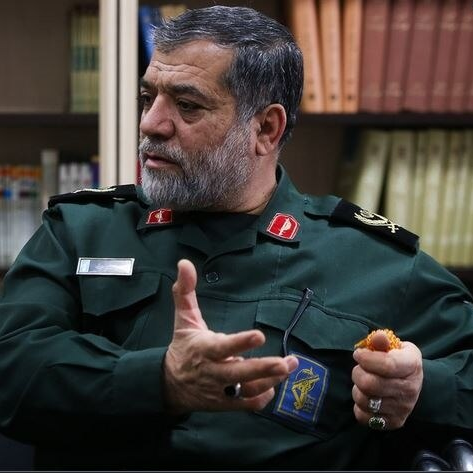
Qasem Rezaei is the U.S.-designated deputy commander of Iran’s Law Enforcement Forces (LEF).“Designating Iran’s Morality Police and Seven Officials for Human Rights Abuses in Iran,” U.S. Department of State, September 22, 2022, https://www.state.gov/designating-irans-morality-police-and-seven-officials-for-human-rights-abuses-in-iran. On September 22, 2022, the U.S. Department of the Treasury designated Rezaei as a Specially Designated National (SDN) for his role in suppressing dissent throughout Iran and engaging in serious human rights abuses.“Designating Iran’s Morality Police and Seven Officials for Human Rights Abuses in Iran,” U.S. Department of State, September 22, 2022, https://www.state.gov/designating-irans-morality-police-and-seven-officials-for-human-rights-abuses-in-iran.
The LEF serves as the Iranian government’s main security force dedicated to suppressing protests. Given that purpose, the LEF played a key role in the crackdown on protesters in the aftermath of the 2009 presidential election as well as the November 2019 protests over gasoline price increases. The LEF’s actions resulted in the deaths of hundreds of Iranian protestors.“Treasury Sanctions Iran’s Morality Police and Senior Security Officials for Violence Against Protesters and the Death of Mahsa Amini,” U.S. Department of the Treasury, September 22, 2022, https://home.treasury.gov/news/press-releases/jy0969.
Rezaei was formerly a border commander for the LEF. In that role, he oversaw the violent treatment—which included using direct fire—of people on Iran’s borders. In May 2020, Rezaei was appointed the LEF deputy commander, where he oversaw the activities of LEF officials. Under Rezaei’s purview, those officials committed serious human rights violations including violence against detainees, specifically, torture and beatings. Rezaei reportedly justified the LEF’s aggressive, and at times deadly, tactics as a suitable way to counteract Iranian protesters. According to the U.S. Treasury Department, in May 2022, Rezaei had encouraged continued violence against demonstrations protesting soaring food prices in Iran.“Treasury Sanctions Iran’s Morality Police and Senior Security Officials for Violence Against Protesters and the Death of Mahsa Amini,” U.S. Department of the Treasury, September 22, 2022, https://home.treasury.gov/news/press-releases/jy0969.
The LEF are one component of Iran’s extensive security apparatus, which among others, includes the Islamic Revolutionary Guard Corps (IRGC) and the Basij. The IRGC is an Iranian government agency tasked with defending the regime against internal and external threats, of which the Basij, is a paramilitary organization charged with channeling popular support for the Iranian regime.“Designating Iran’s Morality Police and Seven Officials for Human Rights Abuses in Iran,” U.S. Department of State, September 22, 2022, https://www.state.gov/designating-irans-morality-police-and-seven-officials-for-human-rights-abuses-in-iran. In September 2022, the IRGC and the Basij joined in violently suppressing protests that erupted after the September 16 death of Mahsa Amini, a 22-year-old Kurdish woman who died in custody after being detained by Tehran’s morality police, the Guidance Patrol, earlier in the month. The Guidance Patrol sent Amini to a detention center to undergo re-education when they claimed she was not wearing a hijab properly. She died three days later. In response, protests erupted across the country against Iran’s theocratic rule. On September 22, the IRGC issued a statement of support for Iranian police in combating the protests and accused protesters of sedition. At least 57 protesters were killed since the protests began after confrontations with Iranian security forces, but information has been limited due to disrupted and limited Internet access throughout the country.Arsalan Shahla, “Iran Launches Artillery Against Militants in Northern Iraq,” Bloomberg, September 24, 2022, https://www.bloomberg.com/news/articles/2022-09-24/iran-launches-artillery-against-militants-in-northern-iraq; “Exclusive: IRGC Commanders’ Families Placed in Tehran ‘Safe House,” Iran Wire, September 26, 2022, https://iranwire.com/en/iran/107958-exclusive-irgc-commanders-families-placed-in-tehran-safe-house; “IRGC will not hesitate to target origin of any anti-Iran operation wherever it may be: General,” Press TV, September 27, 2022, https://www.presstv.ir/Detail/2022/09/27/689915/IRGC-will-not-hesitate-target-origin-any-anti-Iran-operation-General; Caitlin McFall, “The Guardian Patrol sent Amini to a detention center to undergo re-education when they claimed she was not wearing a hijab properly. She died three days later.,” Fox News, September 24, 2022, https://www.foxnews.com/world/protestors-clash-revolutionary-guard-northern-iran-torch-irgc-base-reports; “Iran’s Guards Break Their Silence, Warn Protesters,” Iran International, September 22, 2022, https://www.iranintl.com/en/202209229946.
Given that the LEF is the main agency responsible for cracking down on and suppressing protestors, on September 22, 2022, the U.S. Treasury Department designated Rezaei as an SDN for his role in the abuse and violence against Iranian women and the violation of the rights of peaceful Iranian protestors.“Treasury Sanctions Iran’s Morality Police and Senior Security Officials for Violence Against Protesters and the Death of Mahsa Amini,” U.S. Department of the Treasury, September 22, 2022, https://home.treasury.gov/news/press-releases/jy0969.

The U.S. Department of the Treasury designated Qasem Rezaei as a Specially Designated National on September 22, 2022.“Designating Iran’s Morality Police and Seven Officials for Human Rights Abuses in Iran,” U.S. Department of State, September 22, 2022, https://www.state.gov/designating-irans-morality-police-and-seven-officials-for-human-rights-abuses-in-iran.
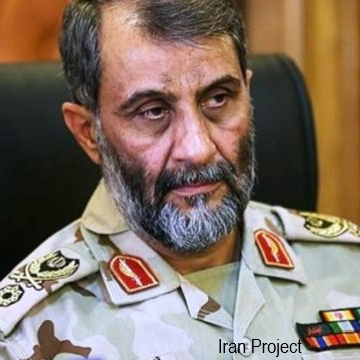
Manouchehr Amanollahi is a U.S.-designated commander of Iran’s Law Enforcement Forces (LEF).“Designating Iran’s Morality Police and Seven Officials for Human Rights Abuses in Iran,” U.S. Department of State, September 22, 2022, https://www.state.gov/designating-irans-morality-police-and-seven-officials-for-human-rights-abuses-in-iran. On September 22, 2022, the U.S. Department of the Treasury designated Amanollahi as a Specially Designated National (SDN) for his role in suppressing dissent throughout Iran and engaging in serious human rights abuses.“Designating Iran’s Morality Police and Seven Officials for Human Rights Abuses in Iran,” U.S. Department of State, September 22, 2022, https://www.state.gov/designating-irans-morality-police-and-seven-officials-for-human-rights-abuses-in-iran.
The LEF serves as the Iranian government’s main security force dedicated to suppressing protests. In November 2019, Amanollahi served as an advisor to LEF leadership where he consulted on the response to nationwide protests against soaring petroleum costs. Ultimately, hundreds of protestors were killed due to the LEF’s aggressive tactics. At some point, Amanollahi became the LEF commander of Iran’s Chaharmahal and Bakhtiari province. Within this role, Amanollahi directed units under his command to use to live rounds against demonstrators protesting the lack of water in November 2021 as well as food rationing in May 2022.“Treasury Sanctions Iran’s Morality Police and Senior Security Officials for Violence Against Protesters and the Death of Mahsa Amini,” U.S. Department of the Treasury, September 22, 2022, https://home.treasury.gov/news/press-releases/jy0969.
The LEF are one component of Iran’s extensive security apparatus, which among others, includes the Islamic Revolutionary Guard Corps (IRGC) and the Basij. The IRGC is an Iranian government agency tasked with defending the regime against internal and external threats, of which the Basij, is a paramilitary organization charged with channeling popular support for the Iranian regime.“Designating Iran’s Morality Police and Seven Officials for Human Rights Abuses in Iran,” U.S. Department of State, September 22, 2022, https://www.state.gov/designating-irans-morality-police-and-seven-officials-for-human-rights-abuses-in-iran. In September 2022, the IRGC and the Basij joined in violently suppressing protests that erupted after the September 16 death of Mahsa Amini, a 22-year-old Kurdish woman who died in custody after being detained by Tehran’s morality police, the Guidance Patrol, earlier in the month. The Guidance Patrol sent Amini to a detention center to undergo re-education when they claimed she was not wearing a hijab properly. She died three days later. In response, protests erupted across the country against Iran’s theocratic rule. On September 22, the IRGC issued a statement of support for Iranian police in combating the protests and accused protesters of sedition. At least 57 protesters were killed since the protests began after confrontations with Iranian security forces, but information has been limited due to disrupted and limited Internet access throughout the country.Arsalan Shahla, “Iran Launches Artillery Against Militants in Northern Iraq,” Bloomberg, September 24, 2022, https://www.bloomberg.com/news/articles/2022-09-24/iran-launches-artillery-against-militants-in-northern-iraq; “Exclusive: IRGC Commanders’ Families Placed in Tehran ‘Safe House,” Iran Wire, September 26, 2022, https://iranwire.com/en/iran/107958-exclusive-irgc-commanders-families-placed-in-tehran-safe-house; “IRGC will not hesitate to target origin of any anti-Iran operation wherever it may be: General,” Press TV, September 27, 2022, https://www.presstv.ir/Detail/2022/09/27/689915/IRGC-will-not-hesitate-target-origin-any-anti-Iran-operation-General; Caitlin McFall, “The Guardian Patrol sent Amini to a detention center to undergo re-education when they claimed she was not wearing a hijab properly. She died three days later.,” Fox News, September 24, 2022, https://www.foxnews.com/world/protestors-clash-revolutionary-guard-northern-iran-torch-irgc-base-reports; “Iran’s Guards Break Their Silence, Warn Protesters,” Iran International, September 22, 2022, https://www.iranintl.com/en/202209229946.
Given that the LEF is the main agency responsible for cracking down on and suppressing protestors, on September 22, 2022, the U.S. Treasury Department designated Amanollahi as an SDN for his role in suppressing dissension.“Treasury Sanctions Iran’s Morality Police and Senior Security Officials for Violence Against Protesters and the Death of Mahsa Amini,” U.S. Department of the Treasury, September 22, 2022, https://home.treasury.gov/news/press-releases/jy0969.

The U.S. Department of the Treasury designated Manouchehr Amanollahi as a Specially Designated National on September 22, 2022.“Designating Iran’s Morality Police and Seven Officials for Human Rights Abuses in Iran,” U.S. Department of State, September 22, 2022, https://www.state.gov/designating-irans-morality-police-and-seven-officials-for-human-rights-abuses-in-iran.

Extremists: Their Words. Their Actions.
Fact:
On April 3, 2017, the day Vladimir Putin was due to visit the city, a suicide bombing was carried out in the St. Petersburg metro, killing 15 people and injuring 64. An al-Qaeda affiliate, Imam Shamil Battalion, claimed responsibility.
Get the latest news on extremism and counter-extremism delivered to your inbox.